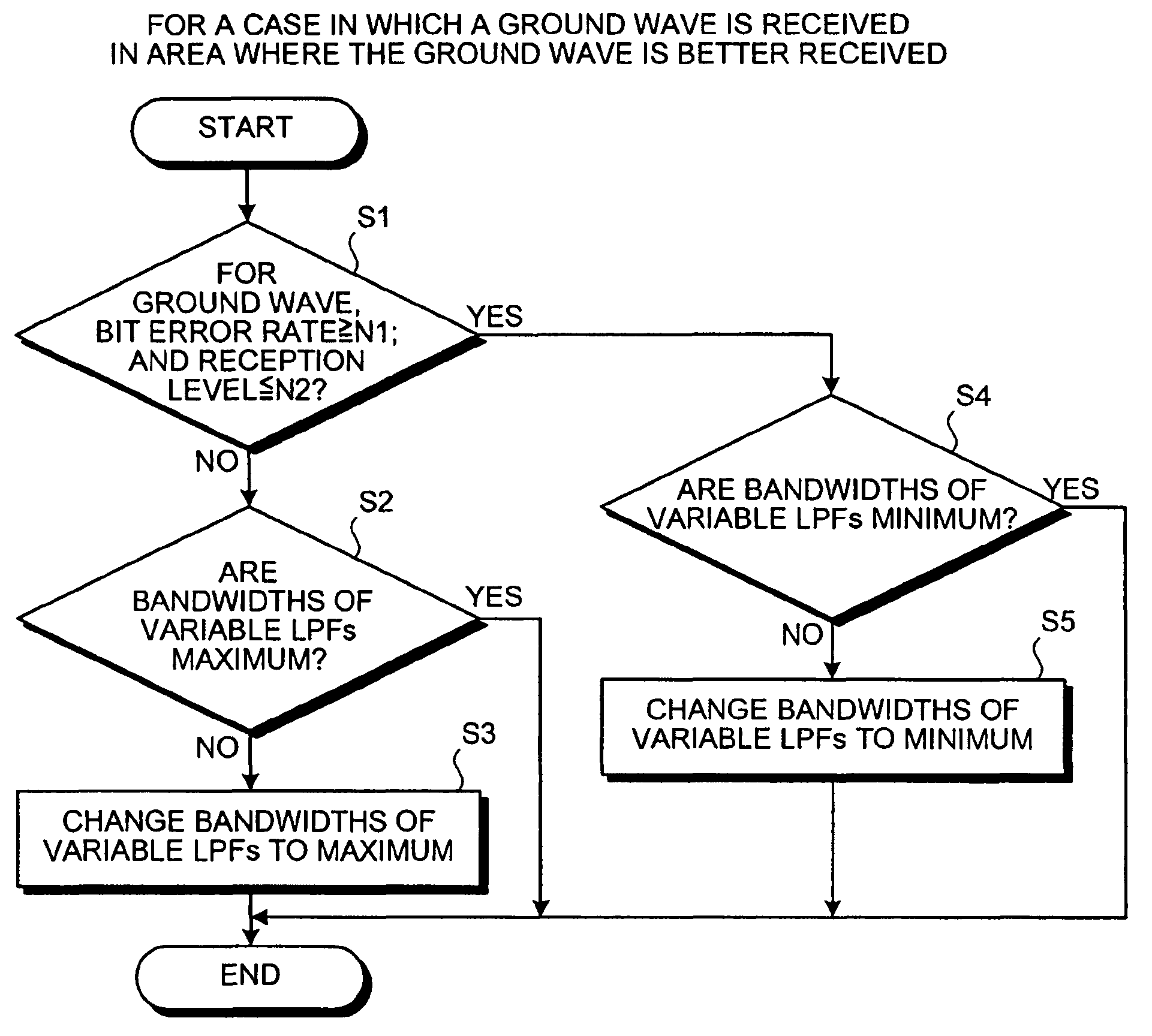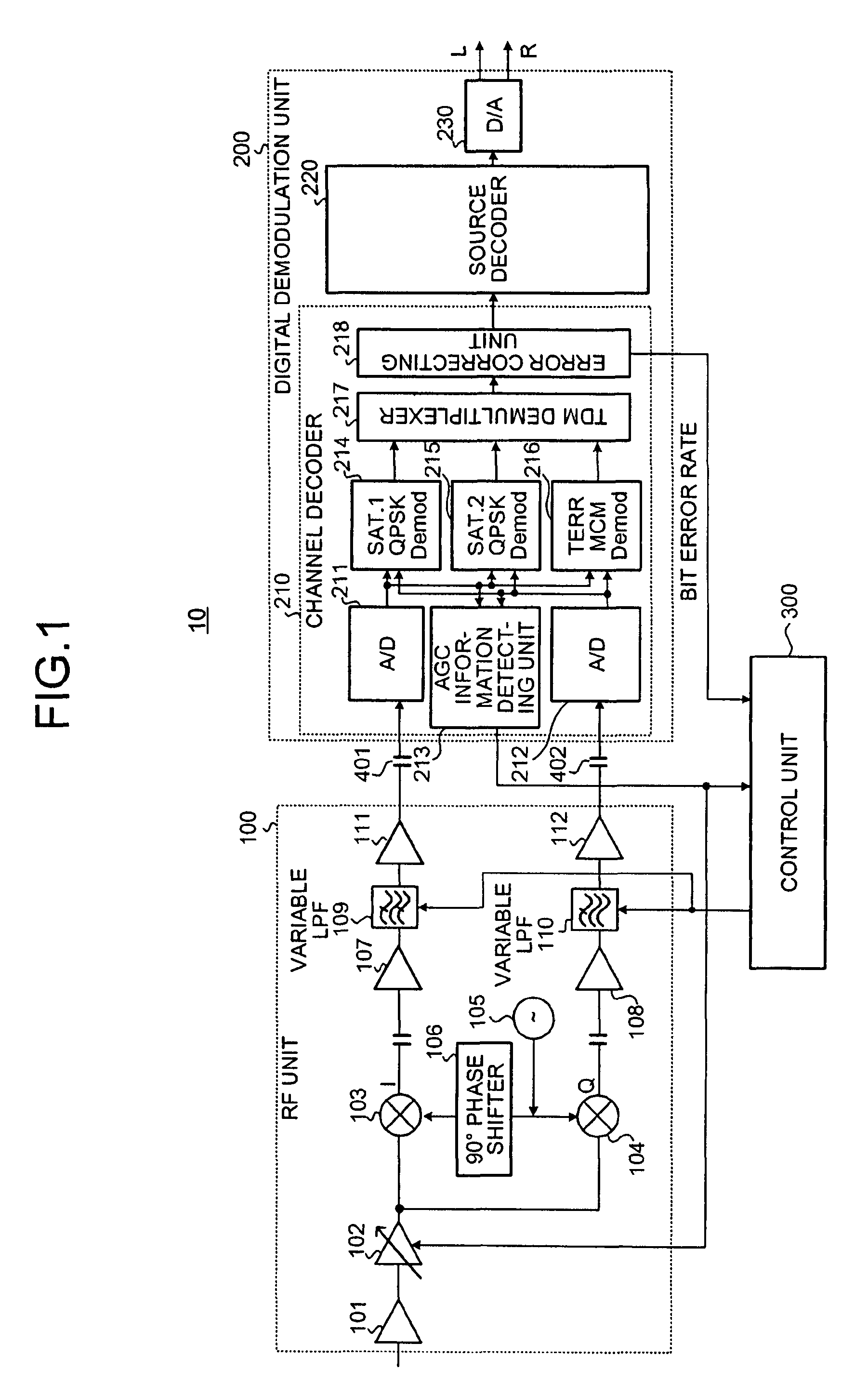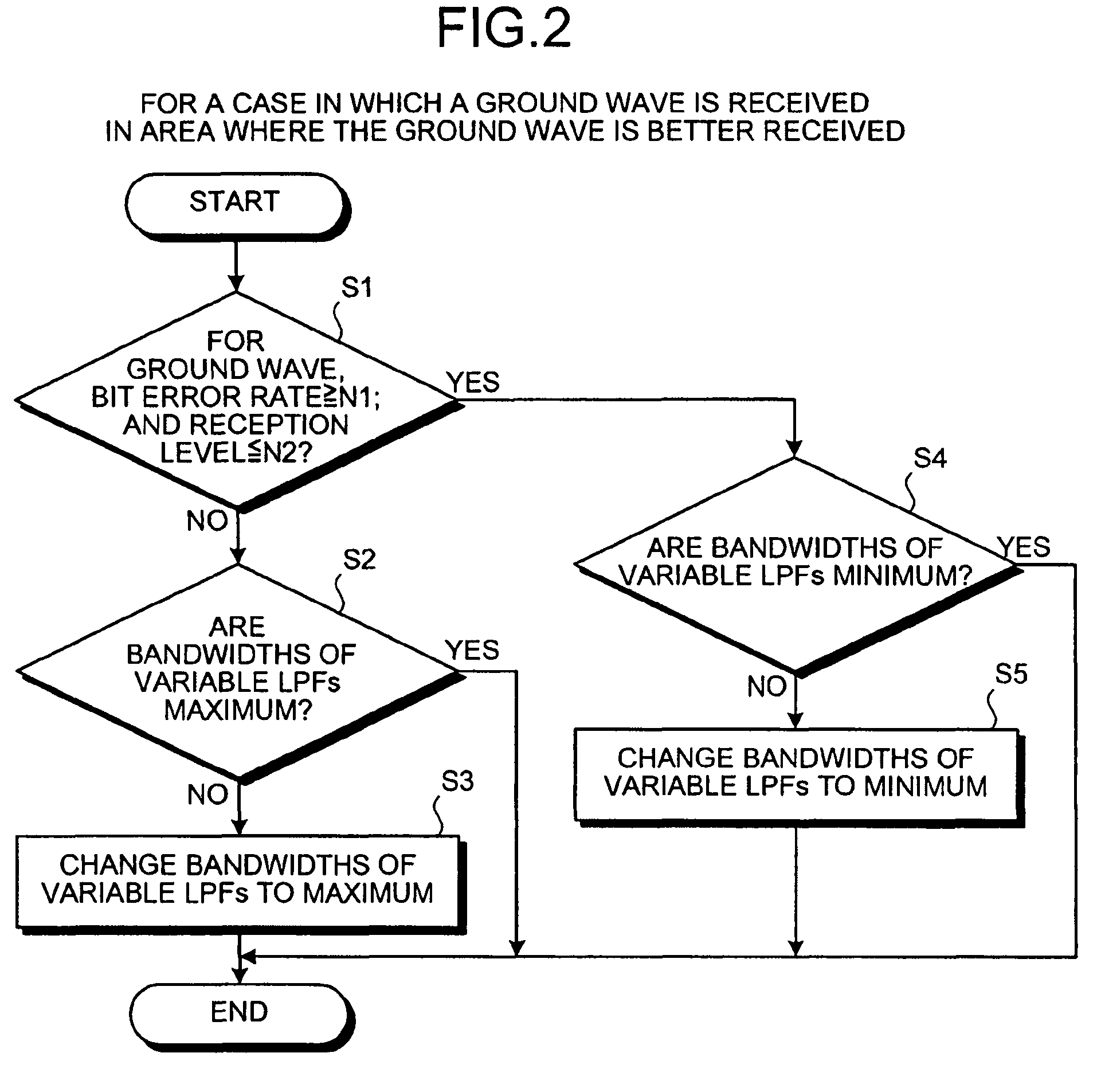High-frequency receiver and adjacent interference wave reducing method
a technology of interference wave and receiver, which is applied in the field of high-frequency receiver and a method of reducing adjacent interference wave, can solve problems such as deteriorating reception sensitivity, and achieve the effect of optimizing reception level and improving reception quality
- Summary
- Abstract
- Description
- Claims
- Application Information
AI Technical Summary
Benefits of technology
Problems solved by technology
Method used
Image
Examples
Embodiment Construction
[0040]Exemplary embodiments of a high-frequency receiver and a method of reducing adjacent interference waves according to the present invention are explained in detail below with reference to the accompanying drawings. The present invention is not limited by the embodiments. All combinations of characteristics explained in the embodiments are not always necessary for the means for solving the problems according to the present invention. Components in the embodiments include components that those skilled in the art can easily anticipate or components substantially the same as the components.
[0041]FIG. 1 is a diagram of a structure of a high-frequency receiver 10 according to an embodiment of the present invention. The high-frequency receiver 10 shown in FIG. 1 indicates, in particular, a digital broadcast receiver that receives the XM satellite radio broadcast.
[0042]The high-frequency receiver 10 shown in FIG. 1 adopts a direct conversion system (also referred to as “zero IF system”...
PUM
 Login to View More
Login to View More Abstract
Description
Claims
Application Information
 Login to View More
Login to View More - R&D
- Intellectual Property
- Life Sciences
- Materials
- Tech Scout
- Unparalleled Data Quality
- Higher Quality Content
- 60% Fewer Hallucinations
Browse by: Latest US Patents, China's latest patents, Technical Efficacy Thesaurus, Application Domain, Technology Topic, Popular Technical Reports.
© 2025 PatSnap. All rights reserved.Legal|Privacy policy|Modern Slavery Act Transparency Statement|Sitemap|About US| Contact US: help@patsnap.com



